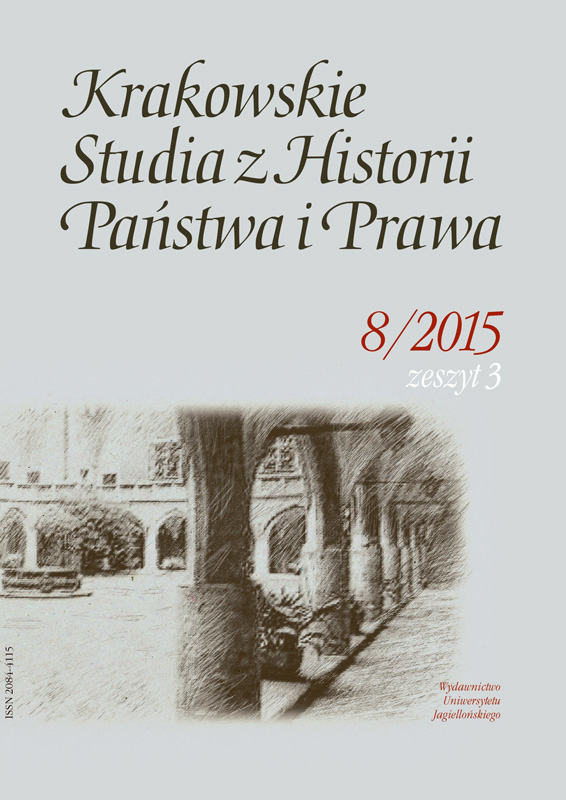Krakowski targ, zadośćuczynienie honorowe, potępienie, czyli polscy literaci XIX wieku o sądach niepaństwowych
The Cracow Bargain, Reparation of Honour, Condemnation – Non-state Courts as Described by Polish Writers of Nineteenth Century
Author(s): Danuta JanickaSubject(s): Regional Geography, Civil Law, 19th Century, Sociology of Law
Published by: Wydawnictwo Uniwersytetu Jagiellońskiego
Keywords: Cracow bargain; armed duels; courts of honour; courts of conciliation; civic courts;
Summary/Abstract: The study presents three types of courts, i.e. courts of conciliation, courts of honor, and civic courts, that functioned outside the official administration of justice in the Polish territory which was divided among the three imperial powers in the nineteenth century. Beyond this, it focuses on popular methods they employed in rendering judgments. The study is based both on literary and journalistic sources, mainly memoirs. Polish writers and publicists attached particular importance to the courts of conciliation. They depicted them as a part of Polish culture and emphasized their great practical importance. They pointed out how these courts passed hundreds of judgments trying to satisfy both parties in any given dispute or take into account their claims according to the “fifty-fifty” rule, widely known in Poland as splitting the difference or a “Cracow bargain”. Moreover, Polish writers wrote about the courts of honor, which began to change their meaning during the late nineteenth century. Until that time they had been functioning as bodies deliberating on allowing armed duels. But by the end of the nineteenth century their judgments began more often to order apologies to the offended party. Polish writers and publicists recommended to the courts of honor that disputes should be settled amicably, i.e. by passing judgments that ordered apologies or the retraction of insults. In this way, the writers took an active part in the public debate concerning duels, which continued into the beginning of the twentieth century. The writers also popularized the civic courts, which had a very specific character. They could investigate Poles’ behavior in the public sphere, and condemn anything they regarded as morally forbidden as being detrimental towards Polish society. A condemnatory judgment from a civic court carried a certain stigma with it, i.e. the state of being deprived of honor and rights within the Polish community. A social activist, priest, or writer who received a condemnatory judgment, had to cease his or her public activity and publications of his or her works, which meant, in fact, a large measure of exclusion from Polish society. One of the notable Polish men of letters, Stefan Żeromski, treated civic courts’ activities with reserve, on the other hand, he never dared to impugn their role.
Journal: Krakowskie Studia z Historii Państwa i Prawa
- Issue Year: 8/2015
- Issue No: 3
- Page Range: 243-256
- Page Count: 14
- Language: Polish

